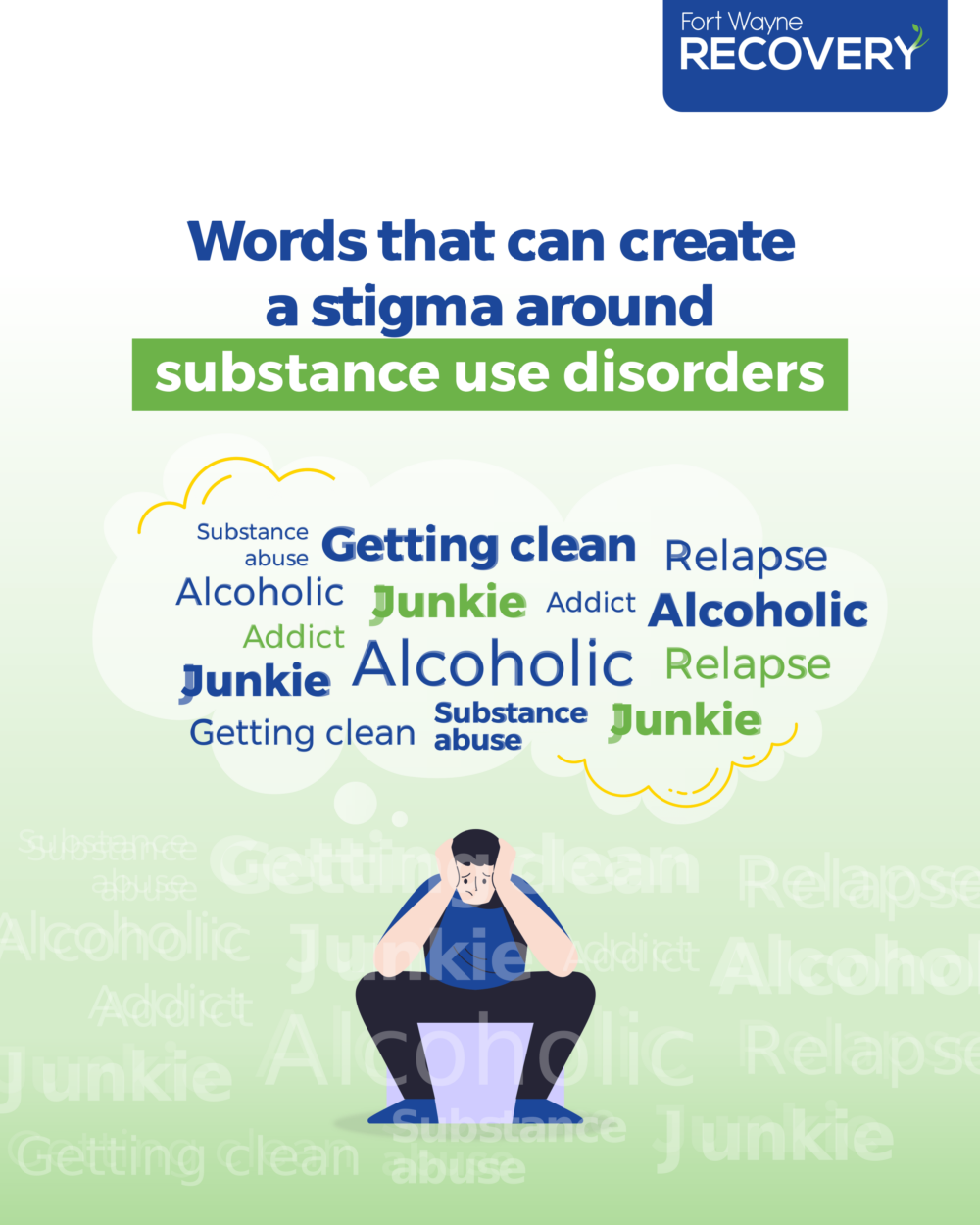Why Words Matter Around Addiction
Why Words Matter Around Addiction
When people hear words like alcoholic, junkie, or addict – negative images often come to mind of people who are homeless, can’t hold down a job, or are in and out of jail. But when these words are replaced by alternate language such as someone who is struggling with a substance use disorder (SUD), that image changes to a beloved family member, friend, or coworker.
100Klives
In 2021, substance use disorders claimed over 100,000 lives in the United States
Even though these words are all related to addiction, the stigma around them can change a person’s perception. Physicians, recovery advocates, researchers and government officials are asking that more thought be given to the words used around addiction. They hope that this will encourage people to seek treatment by removing stigma, ensuring they receive better medical treatment while changing society’s view of addiction as a medical condition instead of a moral issue.

Changing The Way
We Talk About Addiction
Changing The Way We Talk About Addiction
In 2021, substance use disorders claimed over 100,000 lives in the United States but even as more resources become available to people struggling with addiction, they may not seek out help due to the perception of people who are in a detox or rehab facility. According to an article that appeared in The New England Journal of Medicine, Dr. Nora Volko says that people who are struggling with addiction may not receive the same quality of medical care due to how they’re perceived by some healthcare workers. “In emergency departments, for instance, health care professionals may be dismissive of someone with an alcohol or drug problem because they don’t view it as a medical condition and therefore don’t see its treatment as part of their job,” says Volko.
Advocates say that other words that have a negative association with addiction include substance abuse which can imply that people are willingly using drugs and alcohol. The word relapse can suggest that addiction is a series of ups and downs where people are choosing to use substances over and over again and even the phrase “getting clean” should be avoided because it implies that substance use is a “dirty” behavior. Sarah Wakeman, the medical director of the Massachusetts General Hospital Substance Use Disorder Initiative reiterates how the words used around addiction need to change. “Words matter tremendously, and much of the language we use when we talk about addiction is very dissimilar from the language we use for other health conditions,” says Wakeman.
Jaime Case, a Bare Knuckle Recovery team member says that as a regular church attendee, she was afraid to admit that she had an addiction because of the stigma around it. “Alcohol didn’t become an issue with me until after I had kids and I used it as a coping mechanism to deal with the stresses that came along with raising children and being married,” says Case. “I grew up in the church and attended regularly so I had a lot of shame around my addiction. I was struggling to quit and it took a long time before I was able to say that I was an alcoholic and I couldn’t quit consuming alcohol on my own.”
I used it as a coping mechanism to deal with the stresses that came along with raising children and being married”
Jaime Case, A Bare Knuckle Recovery Team Member
Stigma Also Persists Around Addiction Medication
Patients who can take medications like methadone and buprenorphine are 59% and 38% less likely to die of an overdose than those not prescribed any medication. Even if they don’t die, detoxing without the help of medication from some substances can be extremely painful and may cause people to stop the detox process to simply make that pain go away. But they may hesitate to take their medications if they have a medical procedure coming up because of the stigma some healthcare workers have when they realize a patient is taking an opioid agonist therapy (OAT).
Alicia Wells, Director of Public Relations for Fort Wayne Recovery and Allendale Treatment knows this all too well. She said that she had a negative experience when she went to the hospital in labor and was on a MAT (medicated assisted therapy) for an opioid use disorder. “I have this vivid memory of being wheeled out of the hospital with my son in my arms and a nurse scowling at me because she didn’t think I should have my baby because of my substance use history and had contacted CPS,” says Wells. “Part of my work now with Bare Knuckle Recovery is finding medical practitioners who understand what people with substance use disorders are going through so they can provide them with better care through their recovery.”
Some doctors are starting to use terms such as “medications for opioid use disorder” or “pharmacotherapy,” to get away from the stigma but it still persists says Wakeman. “Medication-assisted treatment’ implies that medication is not treated in its own right and that it’s a corollary to something else, when in fact we know that medication is incredibly effective and saves lives,” says Wakeman. “We don’t talk about insulin-assisted diabetes treatment or chemotherapy-assisted cancer treatment. So, to just use language as we would with any other condition is a good litmus test.”
‘We don’t talk about insulin-assisted diabetes treatment or chemotherapy-assisted cancer treatment. So, to just use language as we would with any other condition is a good litmus test.”
‘We don’t talk about insulin-assisted diabetes treatment or chemotherapy-assisted cancer treatment. So, to just use language as we would with any other condition is a good litmus test.”
Changing the Conversation
Jen Hope, Director and Co-Founder of The Mom of an Addict says that it’s important to change the perception of people who have a substance use disorder because it’s much more common than people realize and that’s why she founded The Mom of an Addict. “My son Tommy struggled with addiction for several years and I initially didn’t tell many people about his substance use disorder because I didn’t want people to think he was a bad person,” says Hope. “When I finally told one of my friends about what he was going through she told me that I didn’t look like the mom of an addict I sat with that a while and I thought, what does the mom of an addict look like? What does the mom of a child who struggles with drugs or alcohol, gambling, or shopping look like? They look like me, your neighbor, the person who works with you, there’s no discrimination. We are all capable of being affected by this and that’s where the name The Mom of an Addict comes from.”

Her son Tommy Streeter says that since he grew up in a loving and supportive home people in his life were surprised when they found out he had an addiction. “It doesn’t matter where you come from. I had a great and supportive family and struggled with addiction,” says Streeter. “People shouldn’t be afraid to seek treatment because they don’t think they fit the addict mold or because of the shame that comes with it. It’s an insidious disease and it’s time to treat it like any other medical condition.”

